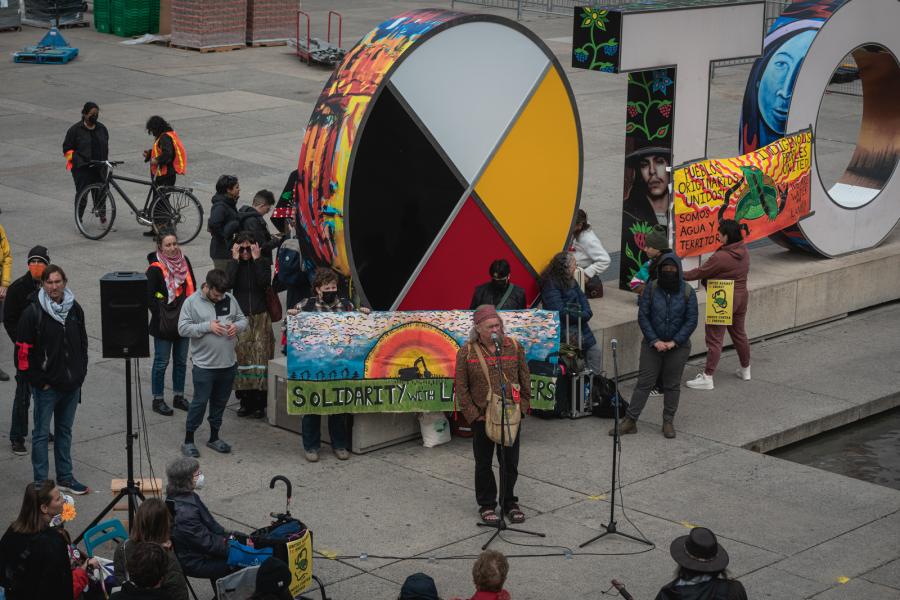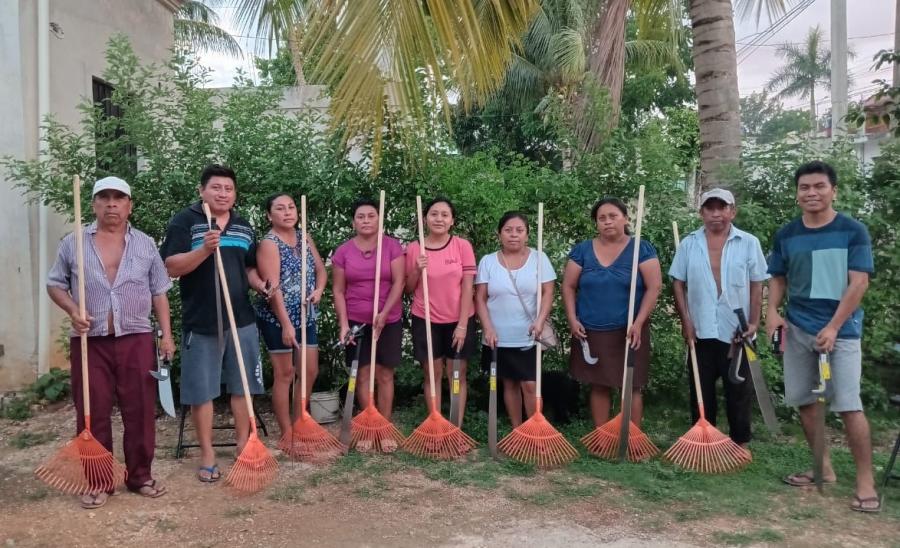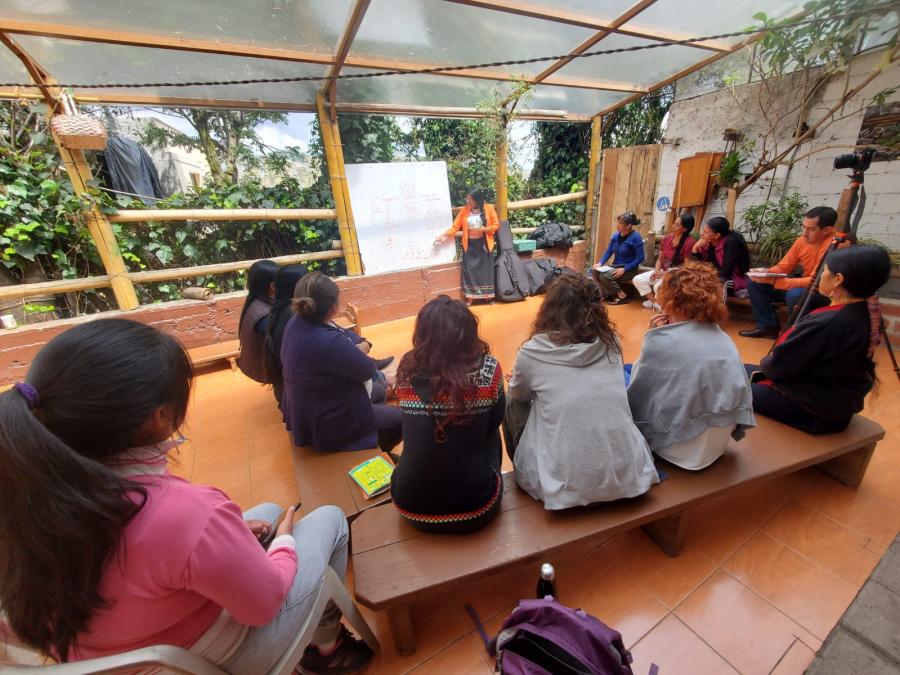
Cultural Survival's Indigenous Youth Community Media Fellowship Project aims to support young Indigenous leaders between the ages of 16-26 who are committed to learning about technology, program development, journalism, community radio, media, and Indigenous Peoples’ rights advocacy. Capacity of the fellows will be built through trainings, community radio station exchanges, and conference attendance.
Kankuamo Youth Commission (Kankuamo) from Atanquez, Sierra Nevada, Santa Marta, Colombia
Taking pride in the power of communication as Kankuamo people, the fellows have been fulfilling their objective in strengthening the spirit and prompting the cosmology of Kankuamos through audiovisual and radio production. Earlier this year, they participated in the temporary closure of the Shanbenshi River, known as Badillo, which has been co-opted as a tourist attraction, to reestablish harmony and environmental recovery and to carry out traditional and cultural practices. To date, they have completed the capacity building trainings and are now developing a series of podcasts on Indigenous ancestral knowledge, sustainable development, food security, oral stories, and territorial defense encompassing the spiritual ecology of the Kankuamo people.
Ronald José Fernández Epieyuu (Wayuu) from Utay Stereo, Guajira, Colombia

Transmitting the oral knowledge of traditional practices, festivals, medicine, and spirituality of the Wayuu peoples in both Wayuunaiki and Spanish through recordings capturing the essence of ancestral knowledge has been a deep intergenerational strengthening process in regenerating the wisdom of the Wayuu people. Fernández has been completing the last few radio spots for the program “Nuchonyu Juya” (“Children of the Rain”), and with the support of a communications team, he has carried out field research and interviews in different communities throughout the resguardo, gaining wisdom from elders, caretakers of the land, and Indigenous authorities. Fernández says that visiting these communities and travelling long distances on foot has motivated him to continue the responsibility of defending the resistance of his ancestors and protecting their territory through community media.
Martha Ortiz Gómez (Maya Mam) from Radio Nan Pix, San Ildelfonso Ixtahuacan, Guatemala
“Cómo nosotros como jóvenes podemos llevar nuestra gente para desapretemos?” How can we, as youth, assist in the awakening of our people? is the central question Ortiz has been addressing in her project, which focused on Indigenous youth migration, particularly the experience of young women. In Huehuetenango, there is a high volume of migration to other countries, especially among youth who do not complete basic education. Ortiz organized a series of forums to discuss the realities youth are facing in Ixtahuacan and to prompt other avenues of opportunity such as journalism and radio production; the local community radio station Nan Pix is an optimal space for women to express and contribute to community development. Ortiz’s project emphasized the importance of young Indigenous women’s participation in community radio as a space where they can receive education on communication and enhance their self-esteem.
Liza Francis Henríquez and Jeyson Adonis Miranda (Miskitu) from Radio Yapti Tasba, Puerto Cabezas, Nicaragua
Miskitu youth, Lisa Francis Henríquez and Jeyson Adonis Miranda, continue to develop content for their radio program “La defensa histórica y presente de la Madre Tierra” (“Historical and current defense of Mother Earth”), for the Indigenous population of Puerto Cabezas. They have been conducting interviews with Miskitu youth from Awastara, Pahara, and Daukra of the Tawira territory, acknowledging the demands and needs they are facing in their communities. The programs are broadcast on Radio Yapti Tasba Bila Baikra. Francis and Adonis have also been active in community events, recently participating in a large assembly for the presidential elections of the Youth Yatama committee where they interviewed young Indigenous delegates from different regions of Nicaragua.
Manuel David Loja Pugo, Jessica Tatiana Sarango Rumipulla, Cristofer Arévalo Rumipulla, (Kichwa) from Radio Kimsakocha, Cuenca, Ecuador
Together with her team, Sarango is continuing her work in producing radio spots on land defense, culture celebration, historical acknowledgment, and territorial protection of the Kichwa and Kañari Peoples in the region of Cuenca, including recording testimonies of Water Protectors where they have been uncovering new teachings and recognizing the importance of having one’s own communication to strengthen ancestral knowledge. She says she is now more proud to be Kichwa and is inspired to share the ancestral knowledge of her people among other youth so that it is not forgotten: “We, as youth, can be an example for future generations. We need to participate in this project to continue the recovery of our culture, customs, and traditions of our country. For us, water is fundamental for our lives. It unites us.”



